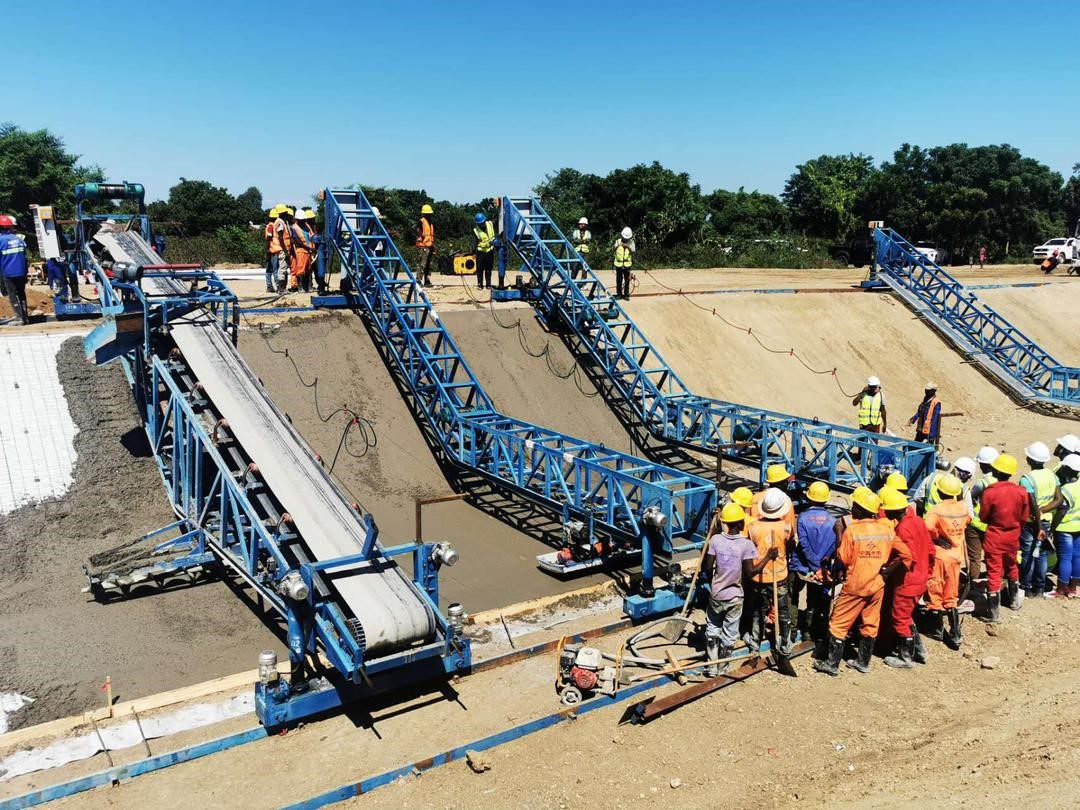Refurbish and build irrigation infrastructure (STVP)
Ministry of Agriculture
(
Government
)
#SDGAction53432
Description
To increase agricultural productivity and commercialization for targeted households in the Shire Valley; and to improve the sustainable management and utilization of natural resources
Providing reliable, professionally managed and sustainably financed irrigation service to irrigators in a phased construction of the scheme and providing multiple services including water supply; Supporting farmer organization within a comprehensive land use plan; supporting land tenure strengthening and consolidation; as well as natural resources management; and Establishment of smallholder owned commercial farm enterprises transitioning into commercial agriculture from subsistence farming and integrating them into commercial value chains.
The Programme has recruited the SOCFE Development Service Providers who are currently training the beneficiaries on cooperatives governance, development of the customary estates into commercial farms, and management of the Smallholder Owned Commercial Farm Enterprises(SOCFEs) as commercial enterprises. Other capacity building initiatives are done through Ministry of Lands on parcels of land demarcation and adjudication.
The Initiative is implemented by Ministry of Agriculture. There is a full time dedicated Project Management Team (PMT) coordinated by a Project Coordinator and have specialists in various fields to facilitate implementation of specific project activities on a day to day basis. The project is overseen by a project steering Commmittee (PSC) which is a committee of Principal Secretaries who provides policy direction and oversight and supported by Project Technical Committee (PTC) which is a committee of Directors who provide technical guidance and oversight.
This is done by the main financiers (IDA and AfDB) on every six months interval. Also done by PMT through quarterly review workshops where all stakeholders together with PMT share and discuss implementation progress. Also done through monthly site meetings to construction sites where PMT, Contractors, Supervising engineers and Govt representatives review construction works.
Ministries of Finance, Energy, Natural Resources, Justice, Lands, Agriculture, Trade &Industry, MITC, PPPC, EGENCO
SDGS & Targets
Goal 8
Promote sustained, inclusive and sustainable economic growth, full and productive employment and decent work for all
8.1
8.1.1
Annual growth rate of real GDP per capita
8.2
Achieve higher levels of economic productivity through diversification, technological upgrading and innovation, including through a focus on high-value added and labour-intensive sectors
8.2.1
Annual growth rate of real GDP per employed person
8.3
Promote development-oriented policies that support productive activities, decent job creation, entrepreneurship, creativity and innovation, and encourage the formalization and growth of micro-, small- and medium-sized enterprises, including through access to financial services
8.3.1
Proportion of informal employment in total employment, by sector and sex
8.4
Improve progressively, through 2030, global resource efficiency in consumption and production and endeavour to decouple economic growth from environmental degradation, in accordance with the 10-Year Framework of Programmes on Sustainable Consumption and Production, with developed countries taking the lead
8.4.1
Material footprint, material footprint per capita, and material footprint per GDP
8.4.2
Domestic material consumption, domestic material consumption per capita, and domestic material consumption per GDP
8.5
8.5.1
Average hourly earnings of female and male employees, by occupation, age and persons with disabilities
8.5.2
Unemployment rate, by sex, age and persons with disabilities
8.6
8.6.1
Proportion of youth (aged 15-24 years) not in education, employment or training
8.7
Take immediate and effective measures to eradicate forced labour, end modern slavery and human trafficking and secure the prohibition and elimination of the worst forms of child labour, including recruitment and use of child soldiers, and by 2025 end child labour in all its forms
8.7.1
Proportion and number of children aged 5‑17 years engaged in child labour, by sex and age
8.8
Protect labour rights and promote safe and secure working environments for all workers, including migrant workers, in particular women migrants, and those in precarious employment
8.8.1
Fatal and non-fatal occupational injuries per 100,000 workers, by sex and migrant status
8.8.2
Level of national compliance with labour rights (freedom of association and collective bargaining) based on International Labour Organization (ILO) textual sources and national legislation, by sex and migrant status
8.9
By 2030, devise and implement policies to promote sustainable tourism that creates jobs and promotes local culture and products
8.9.1
Tourism direct GDP as a proportion of total GDP and in growth rate
8.10
Strengthen the capacity of domestic financial institutions to encourage and expand access to banking, insurance and financial services for all
8.10.1
(a) Number of commercial bank branches per 100,000 adults and (b) number of automated teller machines (ATMs) per 100,000 adults
8.10.2
Proportion of adults (15 years and older) with an account at a bank or other financial institution or with a mobile-money-service provider
8.a
8.a.1
Aid for Trade commitments and disbursements
8.b
By 2020, develop and operationalize a global strategy for youth employment and implement the Global Jobs Pact of the International Labour Organization
8.b.1
Existence of a developed and operationalized national strategy for youth employment, as a distinct strategy or as part of a national employment strategy
SDG 14 targets covered
| Name | Description |
|---|
Deliverables & Timeline
Increased agricultural productivity and commercialization for targeted households in the Shire Valley
Improved sustainable management and utilization of natural resources
Resources mobilized
Partnership Progress

Feedback
Action Network

Type of initiative
Timeline
Entity
SDGs
Geographical coverage
Other beneficiaries
95,000 people in 21,000 household
Website/More information
Countries

Contact Information
Dr Stanley Khaila, The Project Coordinator

